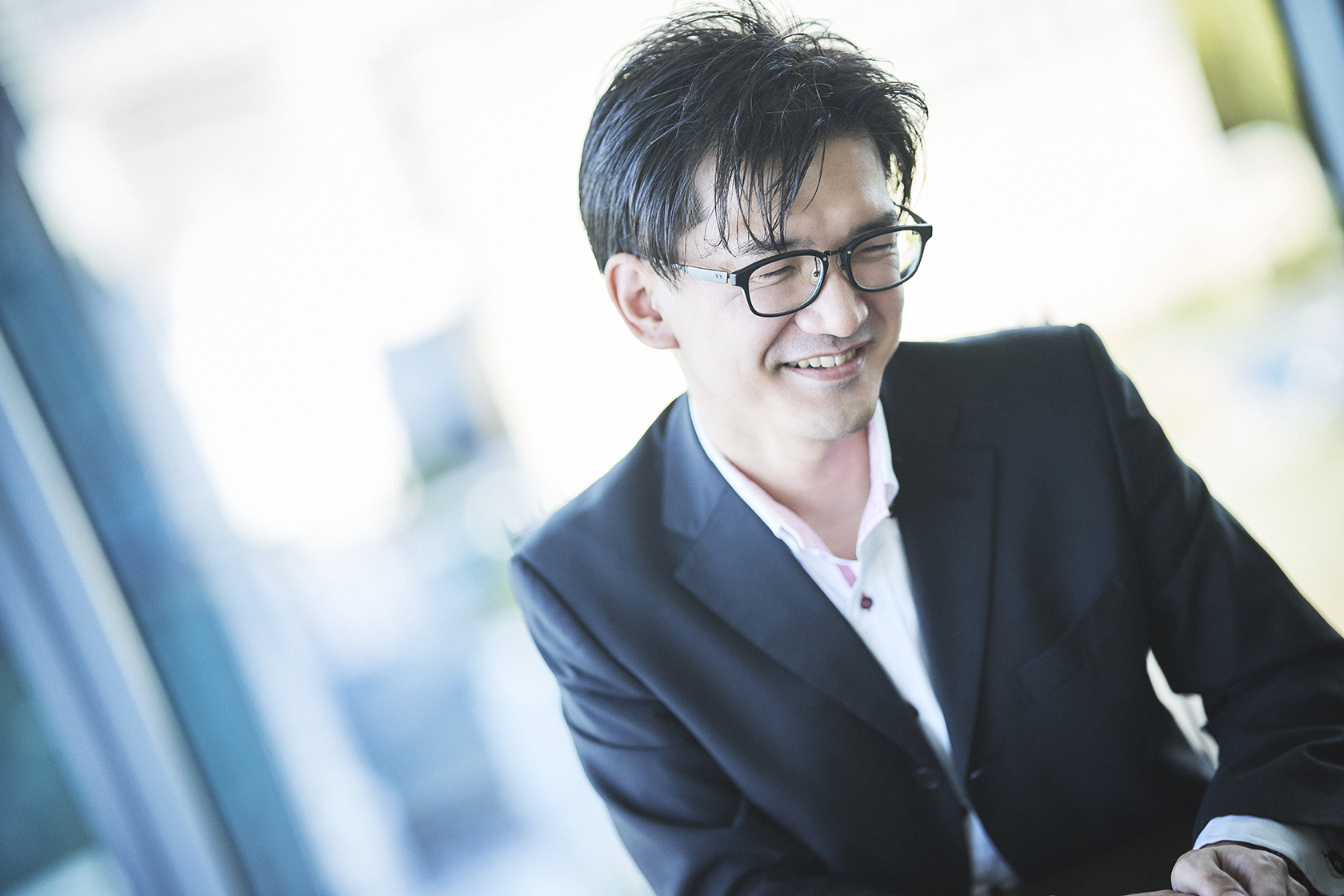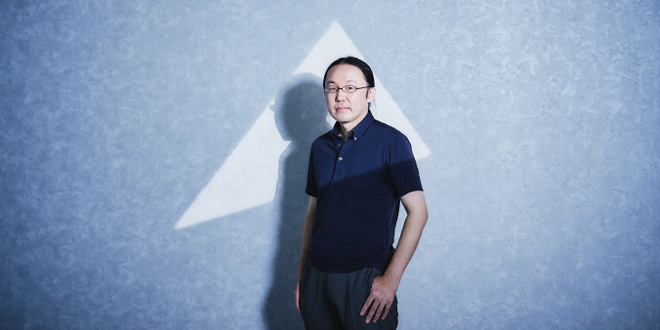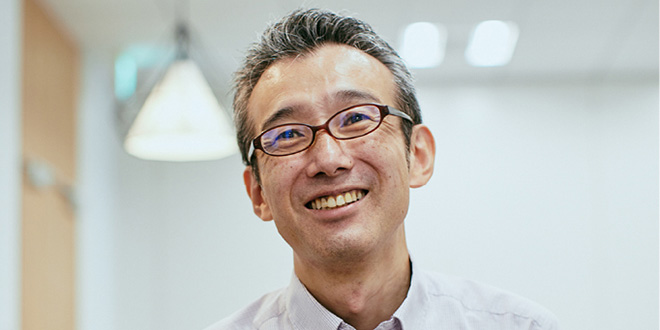Please select your location and preferred language where available.
Seeds of Change: How a Kaggle Grandmaster is Nurturing a New Corporate Culture


- “Game Changers” The Diverse Group of Innovators Who Are Transforming Kioxia -
December 15, 2021
This series of interviews introduces developers and other employees at Kioxia who tirelessly pursue efforts to revolutionize memory development. The interviewees are diverse in occupation, work experience, interests, and background, but they all have one thing in common: they all believe in Kioxia’s mission to “uplift the world with ‘memory.’”
When Masato Naka formed an in-house group at Kioxia for taking part in competitions on Kaggle1, the world’s most cutting-edge AI development community, he knew almost nothing about AI development or programming. Today, he is a top-ranking member of the international Kaggle community and a leader in promoting a programming culture within Kioxia.
1 Kaggle is a global community of data scientists who organize competitions for building the most precise AI algorithms. As of December 2021, there were 8.5 million members.
A Fateful Encounter
Kioxia established the Future Memories project to realize a certain vision: shifting from a focus on recording the past to forecasting the future. One result of this endeavor was an in-house Kaggle group, created in 2019 to help nurture employees to become AI developers. Masato Naka, who develops lithographic photomasks at Kioxia, became involved in this initiative to learn more about machine learning and AI.
“Having joined the Future Memories project, I was given the option of working on either new business ideas or reforming the corporate culture here,” he says. “It was a difficult choice to make, but I decided to go with the latter—specifically, studying machine learning to help me develop new skills that I could pass on to my colleagues and make the company as a whole more competitive. It was around this time that Atsushi Kunimatsu, who works in the cSSD Technology Department and led the Future Memories project, told me about Kaggle and asked me if I was interested in creating an unofficial, in-house Kaggle group.”

Naka says he immediately fell in love with Kaggle, where data scientists from around the world learn from, interact with, and compete against each other. He soon found himself spending more time in the community than he expected. Kaggle allowed Naka to keep one foot in his regular duties as a Kioxia employee and the other in a global community that helped push him to greater heights. This arrangement stimulated him, and soon he was acquiring new skills at a pace that took even him by surprise.
Today, Naka is considered one of the group’s leaders. He has even used this experience to create within his department an official Data Science Group, where he leads discussions on what topics to tackle.

Discovering His Own Potential
In the past, Naka had some interest in the Python programming language as well as machine learning but simply never felt the urge to get hands-on with them. That all changed after joining Kaggle.
On Kaggle, Naka could submit questions to the programmer behind an amazing piece of code and receive a detailed response. He could upload a program he worked hard on and receive constructive feedback from AI developers around the world. These exchanges greatly motivated Naka. He says he felt inspired by the fact that he could be in Japan and still know who was working on the front lines of global AI development, what skills they possessed, and what projects they were working on.

Naka’s Kaggle group also interacted remotely, mostly due to COVID-19 restrictions. Naka says not being able to meet in person did not negatively affect the group’s activities.
“For one thing, the group was established mainly to participate in the competitions organized on Kaggle,” he explains. “For another thing, our members are spread out all over Japan, from Tokyo to Kanagawa to Mie. If anything, going online makes it easier to share information, hold meetings, and organize lectures. If there was one problem with this arrangement, it’s that people tend to get sleepy when I talk. [Laughs.]”
Realizing that a spoken online lecture wasn’t the most exciting format, Naka applied his prior experience as a cram school teacher to make the lectures more participatory. This approach proved to be successful, helping group membership grow from just four to almost thirty—fifty if including non-active participants.
Becoming a Notebook Grandmaster
In 2021, Naka reached a milestone: he achieved Grandmaster2, the highest performance tier, in the Kaggle Notebook category. He is only the fourth Japanese person to earn this distinction, which he earned with a global ranking of 18th out of over 196,000 ranked users in the Notebook category.
2 Notebook Grandmaster is a Kaggle performance tier attained based on the number of upvotes that a user gets for a program they have published on Kaggle.

“This had been a dream of mine, but I never imagined that I’d actually go from zero to Grandmaster,” says Naka. “Even Atsushi [Kunimatsu] couldn’t believe it! In fact, we had just been talking about inviting a Grandmaster from outside the company to give a lecture to our Kaggle group.”
The timing coincided with another momentous occasion: the 2020 Tokyo Olympics. Naka says the serendipity made him feel as if he himself was an Olympic medalist.
Spreading the Knowledge
Having exponentially increased his skill in Python through Kaggle, Naka is now working to share his expertise with the rest of the company. He currently organizes voluntary Python workshops for beginners, primarily for Kioxia employees who have no experience with programming.
“Remember, I had absolutely no experience with Python when I joined Kaggle,” Naka says. “That’s why I decided to share my knowledge with others from my department, but I made participation optional. That didn’t stop the workshops from becoming more popular than I expected. Word of mouth brought in others from both inside and outside my department until I was teaching almost three hundred participants. At every workshop, I have the participants fill out a survey to see what I can improve—I’m essentially constructing the syllabus with the participants. The fact that we’re all motivated and working together to improve our skills across the company really makes these workshops worth doing.”
Naka says his own motivation derives from the sense of responsibility he feels as a leader, adding that positive feedback from others also plays an important role.
“When I upload a program on Kaggle, users from other countries will leave comments like ‘Beautiful code!’ And when I surveyed the participants of my Python workshops, I found that over 90% were satisfied with my lessons. Many of them left comments thanking me for what I do. That really boosted my motivation, and it even gave me the confidence to continue doing these workshops.”

This simple cycle—of bringing joy to others, which then leads to praise, which then leads to greater effort and improved skills—is a win-win for both Naka and Kioxia, especially because when Naka acquires new knowledge and expertise through his activities, he can then apply them to his work.
“I often share information with the other employees on the strategies used by the highest-scoring users in Kaggle competitions,” he says. “These programmers are some of the best in the world; realizing that I could study their approach for hints on things I could incorporate in my own work was a huge revelation to me.”
Getting to meet, interact with, and study from some of the world’s most talented programmers—people he would never get to meet in the office—is one of Naka’s favorite things about organizing the in-house Kaggle group. Kioxia provided him with a great learning opportunity, and Naka feels it is his duty to share whatever knowledge he gains with the rest of the company—his way of saying “thank you.”
A Foundation for the Next Game Changer
Having reached the Grandmaster performance tier in the Notebook category, Naka’s goal now is to become Grandmaster in the Competition3 category, while also continuing his mission to spread his knowledge of data science throughout Kioxia. “If I keep working hard every day, I’m sure my dream will come true,” he says with a smile.
2 Competition Grandmaster is a Kaggle performance tier attained based on the results of competitions where users compete to build the most precise AI models.
Naka has one other ambitious goal: to integrate his Kaggle group activities with his Python workshops. “The goal of the Kaggle group is to nurture employees to become high-level experts possessing world-class AI skills, while the goal of the Python workshops is to provide beginners with a programming foundation. By integrating the two activities, we can increase the number of programmers at Kioxia—and of course, the number of AI programmers. My goal is to make this scheme part of the corporate culture at Kioxia so we can become true industry leaders.”

Through the passion he brought to what was essentially an unofficial study group, Naka has become a Game Changer at Kioxia.
“I hope we’ll see more employees who not only want to study AI for the future of the company but can also make it fun,” Naka says. “Kioxia is a company where, if there is something you can’t do on your own, you can always find people who will do it with you and make it fun. That’s been the case with the Kaggle group and my Python workshops. It’s how we grow stronger together so we can create truly memorable products that have the power to change the world.”
The content and profile are current as of the time of the interview (October 2021).


